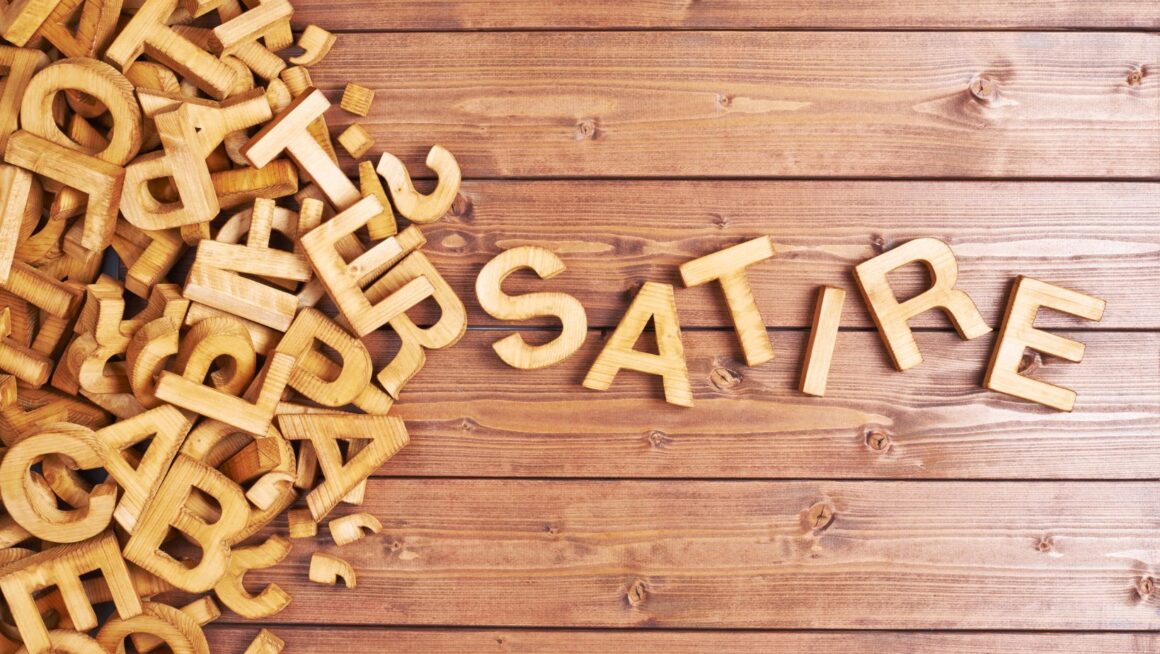Table of Contents
Situational irony is a powerful tool in the realm of satire, allowing for a sharp and often humorous critique of society. As an expert in the field, I have witnessed firsthand how this literary device can effectively highlight the contradictions and absurdities of the human condition. In this article, I will explore how situational irony is intricately woven into the fabric of satire, revealing its true impact and significance.
How Does Situational Irony Best Contribute To Satire
Example 1
When it comes to satire, situational irony is an indispensable tool for exposing the flaws and contradictions of society. By presenting situations in which the outcome is contrary to what is expected or intended, situational irony highlights the absurdities and inherent hypocrisy of our world.
One well-known example of situational irony in satire is Jonathan Swift’s “A Modest Proposal.” In this satirical essay, Swift suggests that the impoverished Irish could alleviate their poverty by selling their children as food for the rich. Through this grotesque proposal, Swift aims to critique the callousness of the ruling class and highlight their indifference towards the suffering of the lower classes. The situational irony of using the most extreme and outrageous solution to tackle poverty serves to expose the societal failures and provoke reflection on the moral decay of the time.
Example 2
Another example of how situational irony contributes to satire can be seen in the TV show “Black Mirror,” specifically in the episode titled “Nosedive.” In this dystopian satire, individuals are rated on every social interaction they have, affecting their social status and opportunities in life. The protagonist, Lacie, desperately tries to boost her rating to gain access to a luxurious lifestyle, only to realize that the pursuit of approval and validation has stripped away her authenticity and humanity. The situational irony lies in the fact that the very system designed to create a harmonious society ends up creating a shallow and artificial one, where genuine human connections are replaced with facades and pretenses. This episode serves as a scathing critique of our obsession with social media and the shallow nature of our online interactions.
Situational irony in satire works because it delivers its message in a way that is unexpected and clever. It forces the audience to step back and question the status quo, challenging our preconceived notions and revealing the absurdity and contradictions embedded in our society. It provides a fresh perspective that is both thought-provoking and entertaining.

Definition of Satire
Satire is a powerful form of literary and artistic expression that utilizes humor, irony, and exaggeration to critique and expose societal issues and flaws. It is a way for writers and artists to shed light on the contradictions and absurdities of the world we live in, ultimately provoking thought and reflection.
Example 1
In Jonathan Swift’s renowned satirical essay, “A Modest Proposal,” he employs situational irony to address the rampant poverty and hunger in Ireland during the 18th century. Swift suggests that selling the children of poor families as a source of food for the wealthy would alleviate both the financial burden and the overpopulation issues. This shocking proposal is delivered with such deadpan seriousness that it serves as a scathing critique of the callousness and indifference of the ruling class towards the suffering of the poor. By taking an extreme stance, Swift forces readers to confront the harsh realities of society and the absurdity of the situation.
Example 2
The episode “Nosedive” from the popular TV series “Black Mirror” is another powerful example of how situational irony contributes to satire. The story is set in a dystopian future where people rank each other based on their social interactions, and these ratings determine their status in society. The protagonist, Lacie, is fixated on achieving a high social score and goes to great lengths to please others, only to find herself trapped in a web of artificiality and inauthenticity. The situational irony lies in the fact that the very system designed to promote social harmony and connection ends up isolating individuals and promoting superficial relationships devoid of genuine emotion. Through this irony, the episode critiques the obsession with social validation and highlights the emptiness that can stem from it.
Situational irony plays a vital role in the effectiveness of satire. Through unexpected twists and turns, it exposes the contradictions and absurdities of society, prompting reflection and challenging our understanding of the world. By using this powerful tool, satirists are able to provoke thought, spark conversation, and inspire change.


